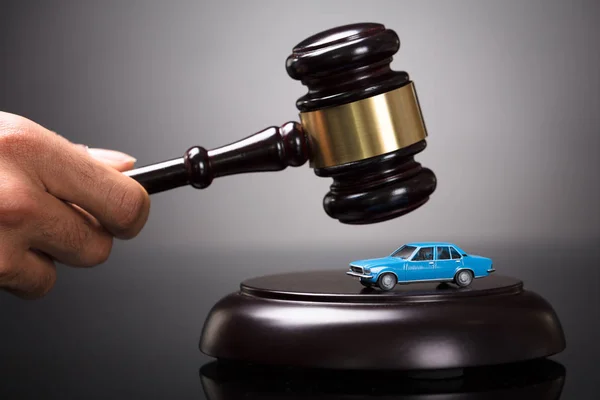What Is Lemon Law In California? A Simple Explanation For Car Owners
Buying a new car is often an exciting experience, filled with the anticipation of driving a reliable vehicle that meets your needs and expectations. However, this excitement can quickly turn into frustration if the car you purchased starts having persistent issues that the manufacturer or dealer cannot fix. If you find yourself in this situation, you may have heard of the "Lemon Law," but what exactly does it mean, especially in California? This guide provides a simple yet comprehensive explanation of California's Lemon Law and how it protects car owners like you.
Understanding the Lemon Law in California
What Is the Lemon Law?
The Lemon Law is a consumer protection law designed to help buyers of defective vehicles. In California, the Lemon Law is formally known as the Song-Beverly Consumer Warranty Act. It offers legal recourse to car owners whose vehicles have serious, unfixable defects that substantially impair their use, safety, or value. Essentially, if you buy a car that turns out to be a "lemon" — meaning it has significant problems that can't be resolved despite reasonable attempts at repair — the law provides a remedy.
What Vehicles Are Covered?
California's Lemon Law applies to both new and used vehicles that are still under the manufacturer's warranty. This includes cars, trucks, SUVs, motorcycles, and even some vehicles like RVs and boats. The law covers vehicles purchased or leased for personal, family, or household use, and in some cases, for business use if the vehicle is under a certain weight limit.
Key Criteria for a Vehicle to Be Considered a Lemon
What is Lemon Law California? is a common question asked by consumers seeking to understand their rights under California's legal provisions for defective vehicles.To be eligible for protection under California's Lemon Law, your vehicle must meet certain criteria:
- Significant Defect: The vehicle must have a substantial defect that affects its use, safety, or value. Minor issues, such as a broken radio or a cosmetic defect, typically do not qualify.
- Number of Repair Attempts: The manufacturer or dealer must have made a reasonable number of attempts to repair the defect. While the law doesn't specify an exact number of attempts, generally, if the same problem persists after two to four repair attempts, the vehicle may be considered a lemon.
- Time Out of Service: If the vehicle has been out of service for repairs for a cumulative total of 30 days or more (not necessarily consecutive), it may qualify as a lemon. This is often referred to as the "30-day rule."
- Covered by Warranty: The defect must have occurred within the warranty period provided by the manufacturer. This means that the problem must have been reported and repairs attempted while the vehicle was still under warranty.

Your Rights Under the California Lemon Law
If your vehicle qualifies as a lemon under California's Lemon Law, you have the right to a remedy. The law offers two main types of remedies:
Replacement Vehicle:
The manufacturer must replace your defective vehicle with a new one that is substantially identical to the original. The replacement vehicle should be free from defects and come with the same warranties as your original vehicle.
Refund:
Alternatively, you may opt for a refund. The manufacturer must reimburse you for the purchase price of the vehicle, including taxes, registration fees, and any incidental costs such as towing or rental car expenses. However, the refund will be reduced by an amount based on the mileage you have driven the vehicle, reflecting the use you’ve gotten out of it.
What to Do If You Think You Have a Lemon
If you believe your vehicle qualifies as a lemon, it’s important to take the following steps:
Keep Detailed Records:
Document all repair attempts, including dates, the nature of the problem, the mileage at the time of each repair, and the outcome of each repair attempt. Also, keep copies of all correspondence with the dealer or manufacturer.
Notify the Manufacturer:
California’s Lemon Law requires that you give the manufacturer a final opportunity to repair the vehicle. This usually means sending a written notice to the manufacturer detailing the issues and giving them a chance to fix the problem.

Consult with a Lemon Law Attorney:
Navigating the Lemon Law process can be complex, and manufacturers often have teams of lawyers to protect their interests. A Lemon Law attorney can help you understand your rights, gather evidence, and negotiate with the manufacturer on your behalf. Many attorneys offer free consultations and only get paid if you win your case.
Common Misconceptions About the Lemon Law
Misconception 1: Used Cars Aren't Covered
Many people believe that the Lemon Law only applies to new cars, but this is not true. As long as the used vehicle is still under the manufacturer's original warranty and meets the other criteria, it can be covered by the Lemon Law.
Misconception 2: You Have to Go to Court
While some Lemon Law cases do go to court, many are settled out of court through negotiations with the manufacturer. Having an experienced attorney can help expedite this process and increase the likelihood of a favorable outcome.
Misconception 3: The Lemon Law Only Applies to Cars
The Lemon Law in California covers a range of vehicles, including trucks, motorcycles, and sometimes even boats and RVs, provided they are covered by the manufacturer's warranty.
4655 Cass St, San Diego, CA 92109, United States.
Phone: +1 619-795-9430

